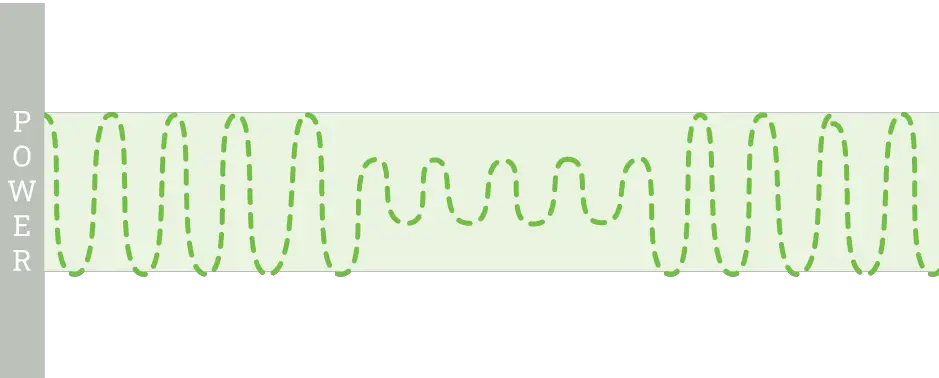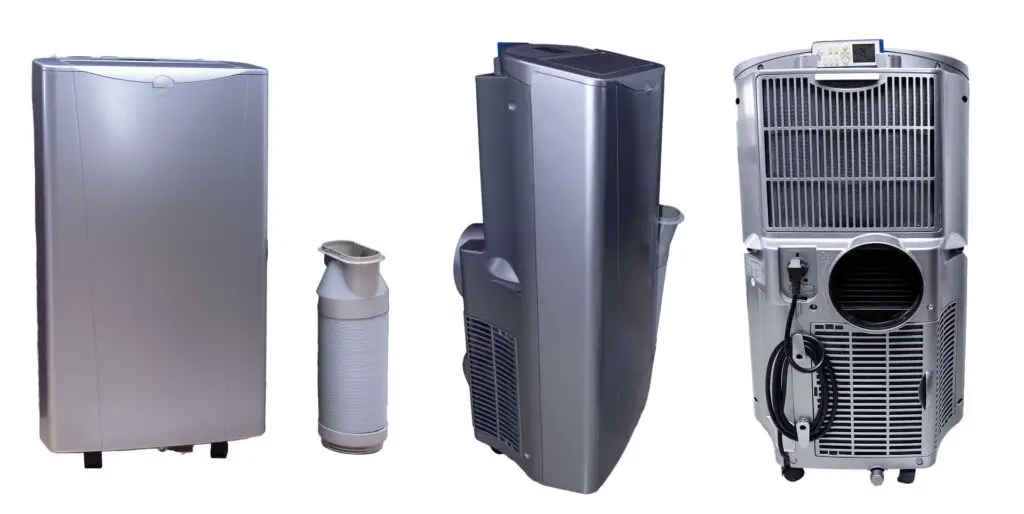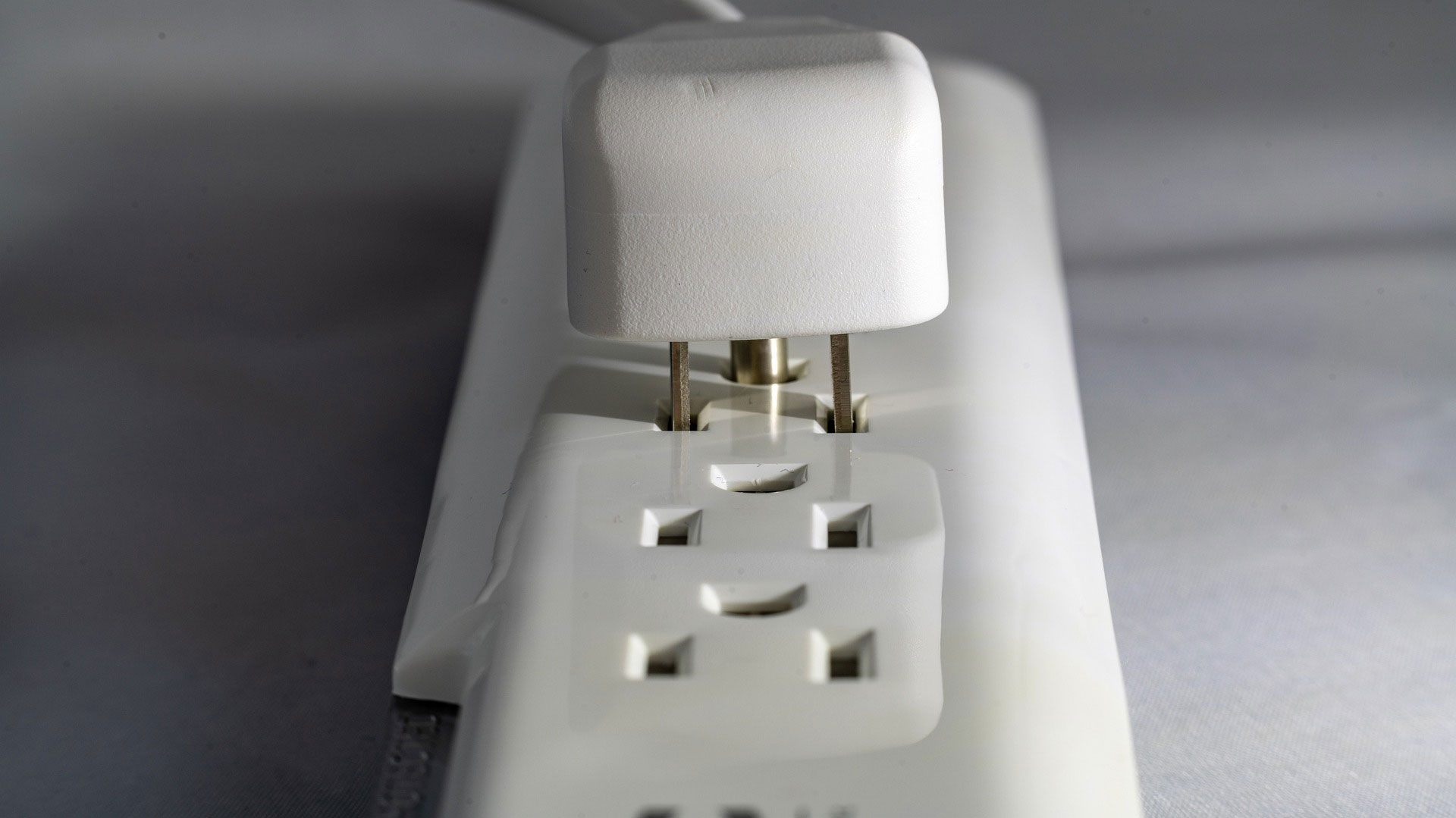While you can plug most small appliances in to an extension cord with no issues, you shouldn’t do so for an aircon
We do not recommend plugging your aircon into an extension cord as it can lead to electrical fires. Also, since you the load of the aircon is higher and its time of use is generally longer than any other appliance (apart from the fridge) you should connect it into a separate circuit breaker to prevent the AC from tripping the main breaker in the case of overcurrent.
In this article, we will discuss the reasons why you can’t do so under all circumstances.
Why you can’t plug an aircon to an extension cord
Air conditioners should always be plugged in to a properly grounded permanent socket – no ifs, no buts. Here are the reasons why:
Extension cords can’t handle the aircon’s power requirements
There is a reason why air conditioners are designed with a short and stocky supply cord – it’s because they need so much power, thinner cords won’t be able to handle it.
Extension cords have a lighter gauge (thickness) compared to the stock cord of an aircon and as well as the wiring inside a regular house socket.
The average wattage of an air conditioner is 1,118W – more than regular extension cords are rated for. If you plug your aircon in an extension cord, it can cause it to overheat and catch fire.
To ensure safety, you should plug your aircon in a grounded house socket.
It can reduce the voltage coming to the AC
The thinner the gauge, the higher the electrical resistance is. Also, the additional length of copper wire has more electrical resistance. These two factors cause a voltage drop (or low voltage fluctuation) along the way.

Not all appliances gets damaged by low voltage fluctuations. However, appliances with motors – such as an aircon – are especially susceptible.
The AC’s compressor needs to maintain a level of torque to work. A higher voltage will increase torque, while a reduced voltage will reduce the torque of a motor.
If the torque decreases to a certain level, it will stall the motor. However, power will still be supplied to the motor. Hence the motor will not move, but heat will still be produced.
According to Ohm’s law, voltage and amperes are inversely proportional – the lower the voltage, the higher the amperage. The more amps flowing, the more heat is produced. This heat can burnout your aircon’s parts and reduce its lifespan.
It doesn’t have a circuit breaker
An aircon draws in more power than any of the other appliance in your home. Because of this, it is recommended that you have a separate circuit breaker for your aircon to protect your home against electrical fires, – and most extension cords do not have a built-in circuit breaker.
Granted, there are extension cords with circuit breakers, but that doesn’t change the fact that they are still extension cords that cannot handle an aircon’s power.
What to do if you have no other choice
Unlike a refrigerator (whose electrical draw is weaker compared to an AC), there is just no work around this issue but to always have a dedicated socket near to where you are going to install your air conditioner.
Apart from that, you can try the following:
Invest in a portable aircon instead

There may be no difference between the lengths of the supply cord of a portable AC vs. a window AC, but you may have more luck finding a nearby outlet for the portable type – just remember to use an adapter for it.
Have an electrician install an outlet
You can have an electrician make a new outlet for your home to accommodate the air conditioner. Sure, it will set you back a few hundreds to even a thousand pesos or more, but it is the best way to ensure your family’s safety from electrical fires.
Conclusion
You can plug most small appliances into extension cords, but for an aircon? Better hold off on that.
Always make sure that you have a nearby plug and separate circuit breaker for your new aircon before purchasing it – this will remove this headache altogether.
Sources
- HowStuffWorks.com Contributors. (2020, July 27). What is the difference between two- and three-pronged plugs? HowStuffWorks. https://electronics.howstuffworks.com/everyday-tech/question110.htm
- The Spruce. (n.d.). How to Choose the Right-Sized Electrical Wire. https://www.thespruce.com/matching-wire-size-to-circuit-amperage-1152865

Miguel Mores worked for 5 years as a member of the product management team for a home appliance company in the Philippines. He started 101appliance to answer the most common customer questions that he has encountered during his time in the industry. He now works in the digital marketing field and manages a small online bookstore on the side.

